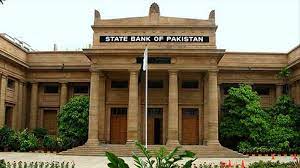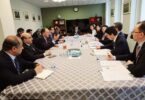F.P. Report
ISLAMABAD: The Federation of Pakistan Chambers of Commerce and Industry’s Businessmen Panel (BMP) on Sunday warned the Central Bank of any further jump in the key policy rate in the upcoming Monetary Policy next month, as the economic crisis continued to deepen due to wrong economic policies amidst record highest markup rate in the region.
FPCCI former President and Businessmen Panel (BMP) chairman, Mian Anjum Nisar said that already unprecedented inflation and high mark-up rate have drastically reduced private sector borrowings during the first quarter of the current fiscal year.
He said that the central bank raised its key interest rate by 300 basis points, exceeding investor expectations, as the cash-strapped country attempts to encourage the International Monetary Fund to release critical funding. The key rate of the State Bank of Pakistan now stands at 20%, its highest level since October 1996.
Now there are reports that the SBP would raise the interest rate by another 2 percent at the upcoming meeting of the Monetary Policy Committee (MPC) to unlock the stalled IMF loan program.
The Businessmen Panel (BMP) chief suggested the Central Bank to adopt an accommodative monetary policy stance, asking the finance minister to fulfill his commitment of reining in inflation besides cutting interest rate and strengthening the undervalued local currency against dollar.
Demanding competitive interest rate at regional countries’ level, he said that the SBP’s stance of keeping monetary policy rate at 17% was already high compared to the markup rate of China, India and Bangladesh. Yet, the central bank jacked up the key policy rate by another 300 basis points to 20% in last monetary policy, leading to the crash of economy, which will remain bearish until announcement of next Policy announcement.
The hike in the interest rate by 300 basis points by the State Bank during the auction of T-bills has increased investors’ problems. In addition, there is a fear of further hike in the interest rate in the monetary policy announcement on 2nd April because of which there is constantly selling pressure in the market, he added.
He said that expectation of further monetary tightening and high current account deficit had sparked panic selling across the board, leading to the capital market’s massive tragedy.
Mian Anjum Nisar said that the SBP had brought forward its policy meeting from an original date of March 16, saying the rate hike was a key requirement to get the IMF funding released.
In its last policy meeting in January the bank raised the rate by 100 bps to 17%. It has now raised rates by a total of 1025 bps since January 2022.
The MPC noted that the recent fiscal adjustments and exchange rate depreciation have led to a significant deterioration in the near term inflation outlook and a further upward drift in inflation expectations, as reflected in the latest wave of surveys.
The SBP sees inflation rising further before it begins to fall. The central bank states that the average inflation for the year is now expected in the range of 27 – 29% against the November 2022 projection of 21 – 23%.
In this context, the MPC emphasized that anchoring inflation expectations is critical and warrants a strong policy response.
He said that while the CPI can potentially increase more with the fiscal actions related to subsidy removals and exchange rate weakness, the government needs to focus on improving the supply side urgently, especially of food and agricultural items.
The government, for its part, should try to cut expenditure and increase revenue through taxes, and has allowed the rupee to depreciate.
As per the ninth review of a previous deal with the international lender, the IMF is due to release a tranche of over $1 billion to Pakistan.
He stressed the need for reduction in the discount rate, arguing that low key policy rate is essential to make the Pakistani exports sector, as well as the local industry competitive.
Anjum Nisar said that in view of achieving exports target and stabilisation of the economy we need accommodative monetary policy measures by extending reduction in the policy rates so that the debt liability of the business sector is compensated through lower markup rate.
The BMP chief said that trade and industry need continued support from the government in the form of lower interest rates, amid such external shocks, he suggested.
He also demanded the immediate reduction in the electricity tariff, especially for the Small and Medium Enterprises (SMEs) as a first step towards a cut in the production cost, while the second and vital step towards this direction would be bringing discount rate to the regional level with a view to provide level-playing field, especially to the export industry.
The FPCCI former president said the central bank should announce an initiative related to loans for the Small and Medium Enterprises (SMEs), as the sector has to show collateral to banks, which are always reluctant to offer them concessional credit.







